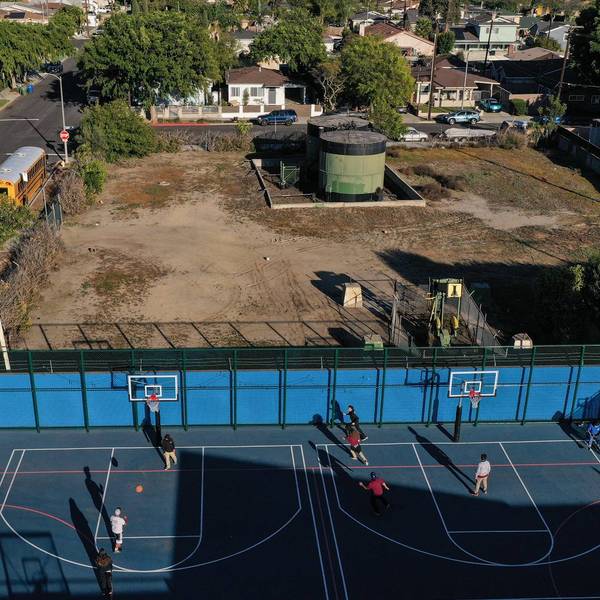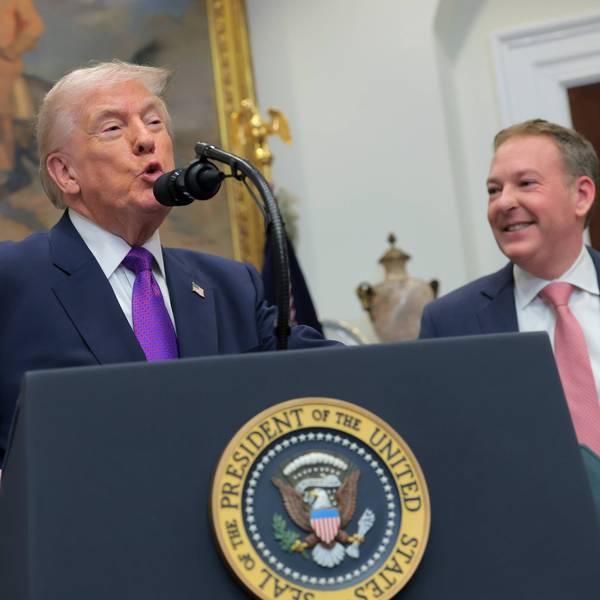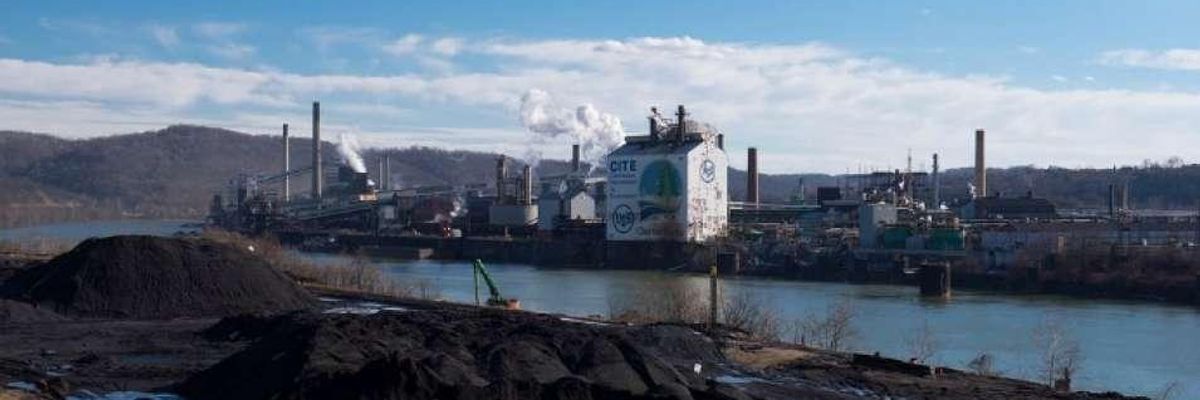Bolstering warnings from environmental and public health advocates about the Trump administration's March decision to temporarily suspend pollution tracking requirements under the guise of providing relief to companies during the coronavirus pandemic, The Hill reported Friday that at least 352 facilities nationwide have used the policy to skip monitoring their water pollution.
"If one of those is emitting toxic pollutants or other contaminants in a habitat for an endangered species, then one is too many, much less 300."
--Jared Margolis, CBD
Critics have expressed concerns over the policy since the Environmental Protection Agency, headed by former coal lobbyist Andrew Wheeler, announced (pdf) the indefinite suspension on March 26.
After an onslaught of outrage from advocacy groups, Democratic lawmakers, states, and even the EPA's inspector general, the agency decided in late June to end the policy on August 31.
Since March, fossil fuel facilities, schools, water treatment plants, and other entities across all 10 of the EPA's regional jurisdictions have taken advantage of the eased Clean Water Act requirements, according to a list the agency shared with The Hill. As the outlet reported:
One facility on the list is owned by a company accused of Clean Water Act violations stemming from oil spills in Wyoming in 2016 and 2019.
The EPA on March 18 said Houston-based Citation Oil & Gas Corp. would pay a civil penalty of $115,000 to resolve allegations of regulatory violations surrounding the oil spills.
The company did not respond to a request for comment.
Activists continue to raise concerns about long-term impacts of the suspension. Jared Margolis of the Center for Biological Diversity (CBD), which has threatened to sue the EPA over the policy, told The Hill that "one waiver can be a big deal from our perspective."
"It matters where exactly they are, what the pollutants are, how much output there was," Margolis said. "If one of those is emitting toxic pollutants or other contaminants in a habitat for an endangered species, then one is too many, much less 300."
The Hill noted that "Clean Water Act discharges were not the only type of pollution-monitoring impacted by the temporary EPA policy. Facilities are permitted to skip other types of pollution monitoring, meaning the total number of facilities taking advantage of the policy likely exceeds 352."
CBD has repeatedly slammed the EPA suspension. The center's Hannah Connor was among representatives from over 20 advocacy groups who signed on to a March letter (pdf) to agency enforcement official Susan Parker Bodine staunchly objecting to "blanket EPA waivers for polluters during coronavirus crisis" and urging the agency to protect public health.
In early April, CBD submitted a public records request to the EPA regarding the policy. Clare Lakewood, the center's climate legal director, declared at the time that "it's appalling to see Trump's EPA using the coronavirus as an excuse not to protect Americans from polluters like the oil industry."
Other critics of the suspension include youth climate leader Greta Thunberg, founder of the Fridays for Future movement; Cynthia Giles, who ran the EPA's Office of Enforcement during the Obama administration; Rep. Mark Pocan (D-Wis.), co-chair of the Congressional Progressive Caucus; and various other Democrats in Congress.
In a June 10 letter (pdf) to Wheeler, Reps. Frank Pallone (D-N.J.), Peter DeFazio (D-Ore.), and Betty McCollum (D-Minn.) suggested that "EPA's Covid-19 enforcement policy creates license for companies to violate our environmental laws."
EPA's Bodine responded in a June 29 letter (pdf) to Pallone, claiming that the agency's temporary suspension "has not weakened protections for human health and the environment" and disclosing that "out of over 49,600 facilities with a Clean Water Act discharge permit, only about 300 facilities have used the Covid-19 code."
In an emailed statement to The Hill, an EPA spokesperson similarly pushed back against the premise that the policy could increase pollution, saying that "we have no data to support the premise that there is a correlation between facilities encountering difficulty in reporting due to the Covid-19 public health emergency and an increase in discharges from those facilities."
This post has been updated following an update by The Hill that while a location of the fast-food restaurant Waffle House was included on the list, "a company spokesperson said that particular restaurant did not have enough customers to generate a pollution discharge and didn't stop monitoring its pollution or seek a waiver from the EPA."




